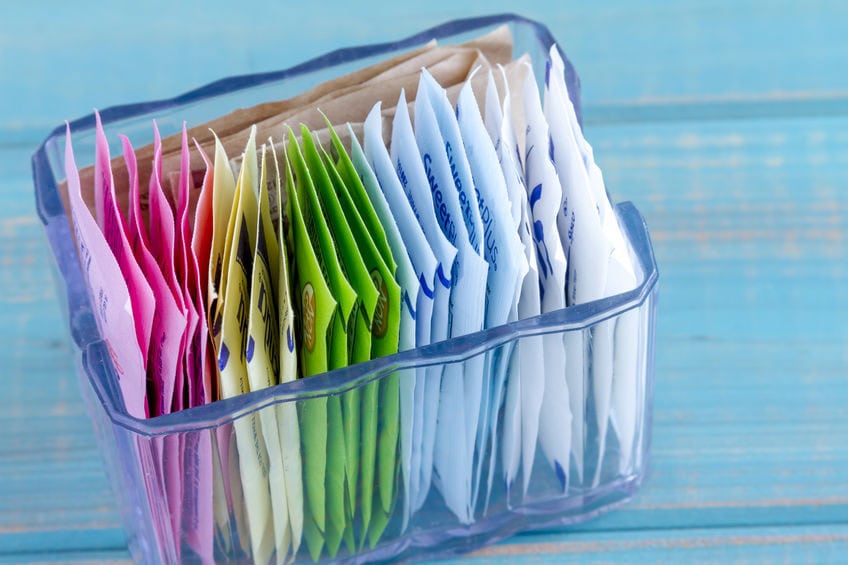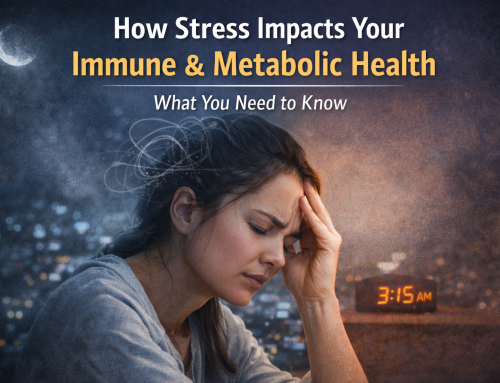Are artificial sweeteners bad for your brain? This study show that they may backfire and trick your brain into feeling hungrier.
• The artificial sweetener sucralose may increase activity in the brain’s hunger-regulating center (hypothalamus) compared to regular sugar, potentially stimulating appetite instead of satisfying it.
• The brain response to the artificial sweetener varies by body weight and sex, with stronger effects observed in people with obesity and in female participants.
• Sucralose may create a “mismatch” in the brain by providing sweet taste without delivering the expected calories, which may alter functional connections between brain regions involved in hunger, motivation, and reward processing.
Most of us reach for diet sodas and sugar-free treats with the best intentions – to satisfy our cravings without the caloric consequences. But what if some artificial sweeteners –the very products designed to help us manage our weight — are actually sending confusing signals to our brains? New research suggests that the sugar substitute sucralose could be doing just that.
Published in Nature Metabolism by researchers from the University of Southern California, the study uncovers concerning evidence that sucralose – one of the most widely used artificial sweeteners – may interfere with the brain’s natural hunger regulation mechanisms in ways that could potentially increase appetite rather than satisfy it.
The research reveals how the brain responds differently to artificial sweeteners compared to regular sugar, potentially creating a disconnect between the sweet taste our tongues experience and the metabolic feedback our brains expect to receive. The findings offer fresh insights into why weight management remains challenging despite widespread use of non-caloric sweeteners.
The research team, led by Dr. Kathleen A. Page, director of the USC Diabetes and Obesity Research Institute and co-chief of the Division of Endocrinology and Diabetes at the Keck School of Medicine of USC, conducted a randomized crossover trial with 75 young adults across varying weight categories. Their discoveries might make you think twice before reaching for that next diet soda.
Are Artificial Sweeteners Bad for Your Brain?
When we consume something sweet, our brain prepares for the arrival of calories and nutrients. It’s a relationship that evolved over millennia – sweet taste signals energy is coming. But artificial sweeteners could be breaking this natural connection.
In the study, participants consumed drinks containing either sucralose, regular sugar (sucrose), or plain water. Researchers then monitored what happened in their hypothalamus – the brain region responsible for regulating hunger and metabolic processes.
Results show that sucralose stimulated greater hypothalamic blood flow compared to sucrose or water. In the brain’s language, this increased activity is typically associated with hunger, not satisfaction.
More tellingly, participants reported feeling significantly hungrier after drinking the sucralose beverage compared to the sugar-sweetened one. The sugar drink triggered appropriate metabolic responses – raising blood glucose, insulin, and GLP-1 hormone levels – which corresponded with decreased hypothalamic activity and reduced hunger. But sucralose, despite delivering the same sweet taste, failed to provide these metabolic signals.
It appears that the artificial sweetener may create a form of sensory confusion. Your tongue tastes sweetness, but your body never receives the calories it expects. This mismatch might leave the brain in a state of unfulfilled anticipation, potentially driving continued hunger rather than satisfaction.
As a Nutritionist, I Know that Different Bodies Respond Differently
Particularly fascinating was how body weight influenced these responses. The study found distinct differences in brain reactions across healthy weight, overweight, and obese individuals.
Those with healthy weight showed greater hypothalamic activation after consuming sucralose compared to sucrose. Meanwhile, individuals with obesity exhibited stronger hypothalamic responses to sucralose versus water, but not versus sucrose.
These findings suggest that weight status might influence how the brain interprets and responds to sucralose, reflecting complex interactions between body composition and brain signaling pathways.
Sex differences emerged as well, with females showing more pronounced hypothalamic responses to sucralose compared to both sugar and water. This aligns with previous research indicating that women may have enhanced brain responses to food cues compared to men.
How Sucralose May Rewire Brain Connections
Beyond just activating the hypothalamus, sucralose also altered the functional connections between brain regions. Compared to sucrose, sucralose increased connectivity between the hypothalamus and the anterior cingulate cortex – an area involved in motivation and reward processing.
When compared to water, sucralose enhanced connections between the hypothalamus and the superior parietal lobule, which plays a role in sensory integration.
These connectivity changes suggest that the artificial sweetener might influence not only our physical hunger signals but also our psychological relationship with food, potentially affecting motivation and pleasure-seeking behaviors around eating.
Another significant finding involved insulin sensitivity – a measure of how effectively the body processes glucose. Participants with lower insulin sensitivity showed stronger hypothalamic responses to sucralose compared to those with higher insulin sensitivity, regardless of their body weight.
This suggests that metabolic health factors beyond just body weight might influence how the brain responds to sucralose. For individuals with insulin resistance or prediabetes, the sugar substitute might trigger even stronger hunger signals in the brain.
Advice from a Weight Loss Coach: Consider Rethinking Your Relationship with Artificial Sweeteners
Since their introduction to the market, artificial sweeteners have been promoted as tools to help reduce sugar consumption while satisfying our innate preference for sweetness. The average American consumes approximately 17 teaspoons of added sugar daily – well above recommended limits – so the appeal of a calorie-free alternative is obvious.
But this research adds to growing concerns that artificial sweeteners might not deliver on their promise of simpler weight management. If these substances are potentially disrupting our brain’s natural appetite regulation mechanisms, the calculation becomes more complex.
While this study specifically examined sucralose, hundreds of different artificial and natural non-caloric sweeteners exist in the marketplace, each with its own chemical structure and potential physiological effects. Future research will need to explore whether similar brain responses occur with other popular sweeteners like aspartame, saccharin, or plant-based alternatives like stevia.
Beyond simply counting calories, we may need to think about how different sweeteners interact with our brain’s appetite regulation systems.
Click here to read more about are artificial sweeteners bad for the brain.






